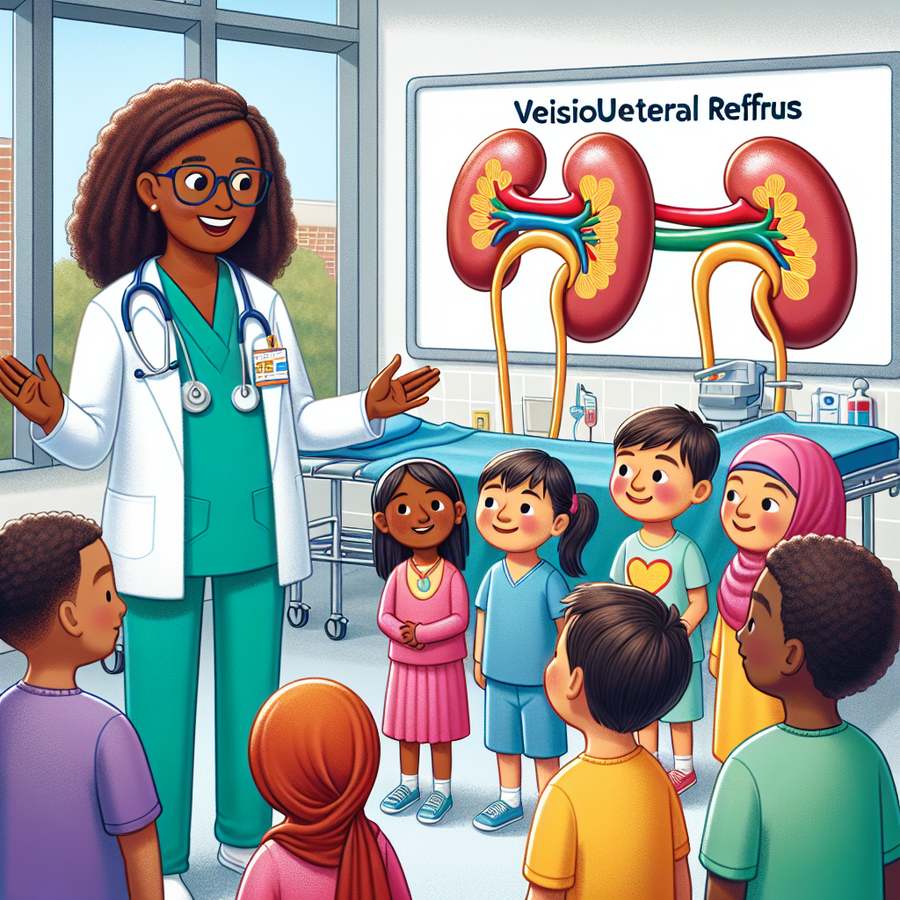Vesicoureteral Reflux (VUR) is a medical condition that can affect babies and young children, causing urine to flow backward from the bladder into the kidneys. This comprehensive guide aims to provide new parents with a deep understanding of VUR, including its symptoms, diagnosis, and treatment options. By equipping yourself with this knowledge, you can better advocate for your child’s health and well-being.
What Is Vesicoureteral Reflux?
Vesicoureteral Reflux is a condition where the flow of urine reverses direction, moving from the bladder back towards the kidneys instead of exiting the body. This can lead to repeated urinary tract infections (UTIs), which if left untreated, may cause kidney damage. There are two types of VUR: primary, which is present at birth due to a congenital abnormality in the valve between the ureter and bladder, and secondary, which develops as a result of blockages or irregular bladder function.
Understanding the signs and symptoms of VUR is crucial for early detection and treatment. Common indicators include frequent UTIs, fever, and in some cases, poor weight gain or growth in infants. If you suspect your child may have VUR, consulting with a pediatrician is an essential step.
Diagnosing Vesicoureteral Reflux in Babies
Diagnosis of VUR typically involves a series of tests to evaluate the function of your child’s urinary tract and kidneys. Common diagnostic tools include a Voiding Cystourethrogram (VCUG), which uses X-rays to visualize the bladder and urethra during urination, and a renal ultrasound to assess kidney health. Early diagnosis is key to managing VUR and preventing potential complications.
For more detailed information on diagnosing this condition, parents can refer to The Urology Care Foundation’s resource on VUR. It’s imperative to seek a pediatric urologist’s expertise for an accurate diagnosis and tailored treatment plan.
Treatment Options for Vesicoureteral Reflux
The treatment for VUR depends on its severity. Mild cases may resolve on their own as the child grows, while more severe forms might require medication or surgery. Antibiotics are often prescribed to prevent UTIs and protect the kidneys from infection-induced damage. Surgical options include endoscopic surgery, where a substance is injected near the valve to prevent reflux, or ureteral reimplantation to correct the valve’s position.
It’s important for parents to closely monitor their child’s health and adhere to the prescribed treatment plan. Regular follow-ups with a pediatric urologist will ensure that any adjustments to the treatment can be made promptly, optimizing the chances of a positive outcome.
Preventing Kidney Damage
Preventing kidney damage is a primary concern in managing VUR. This involves prompt treatment of UTIs, regular monitoring of kidney function, and in some cases, prophylactic antibiotics to reduce the risk of infection. Ensuring your child receives adequate hydration is also crucial in supporting urinary and kidney health.
For parents looking for more information on preventing kidney damage, resources such as Understanding Kidney Reflux can provide valuable insights and strategies to protect your child’s renal health.
Lifestyle and Home Care Strategies
Alongside medical treatment, there are several lifestyle and home care strategies that can support your child’s health. These include timed voiding to encourage regular urination, bladder training exercises, and dietary modifications to prevent constipation, which can exacerbate VUR. Engaging in open dialogue with your child about their condition and treatment can also help them feel more comfortable and cooperative.
For parents seeking additional guidance, exploring resources on related topics such as Urinary Tract Infections in Babies and Dealing with Constipation in Young Children can offer helpful tips and support.
Supporting Your Child’s Emotional Well-being
Dealing with a medical condition like VUR can be challenging for both the child and the family. Providing emotional support and reassurance to your child is essential. Encouraging open communication about their feelings and experiences can help them cope with their condition. Additionally, connecting with support groups or other families going through similar experiences can offer comfort and valuable advice.
Resources such as Building Secure Attachment with Your Baby can also provide tips on strengthening your bond, which is crucial during challenging times.
In conclusion, while Vesicoureteral Reflux presents challenges, with proper care and treatment, most children can lead healthy, active lives. By staying informed and working closely with healthcare providers, parents can ensure the best possible outcomes for their children affected by VUR.













